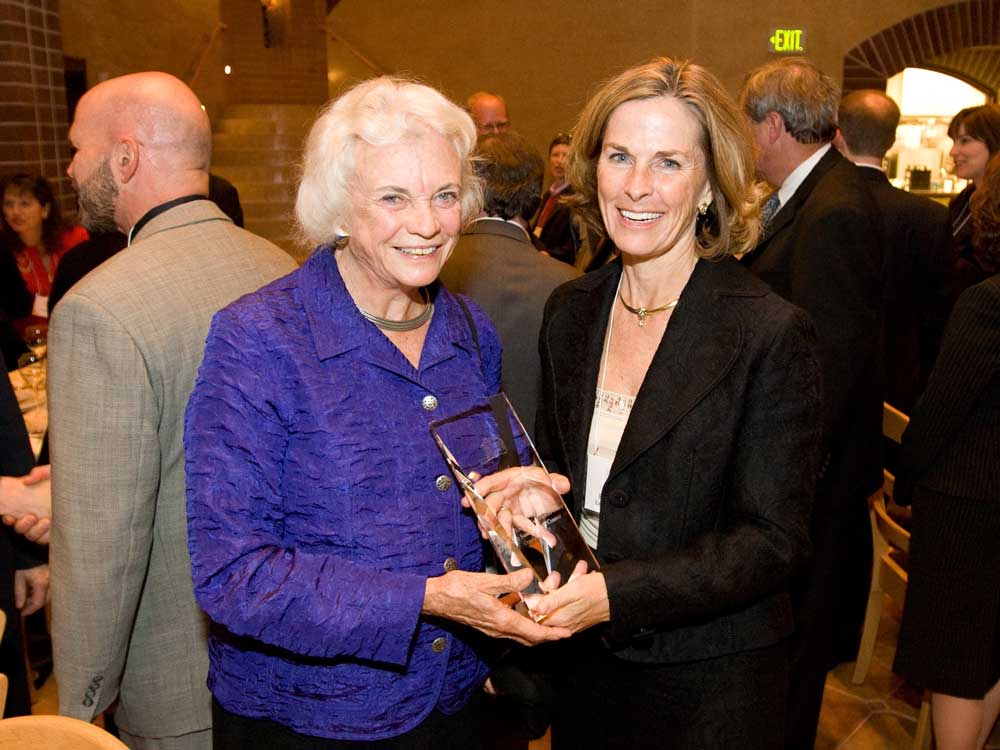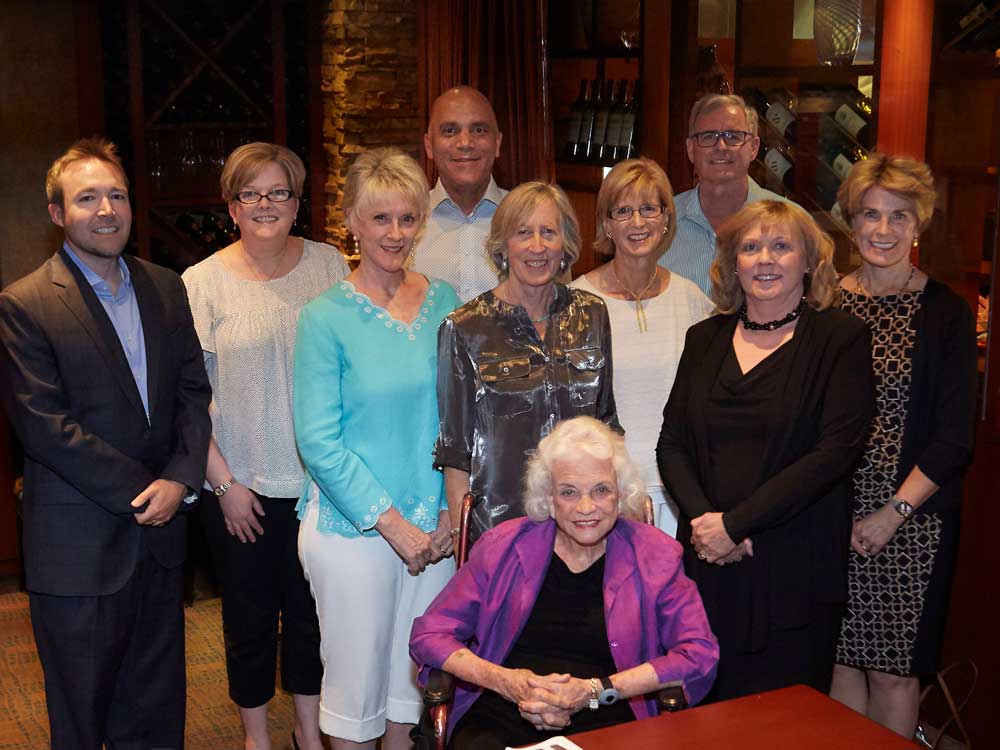IAALS Honors Justice Sandra Day O’Connor and Commits to Carrying on her Legacy
 We at IAALS are among the many saddened by the passing of U.S. Supreme Court Justice Sandra Day O’Connor. A trailblazer in many regards, Justice O’Connor left an indelible legacy on our judicial system: one committed to fairness, equality, and the rule of law over gender or background, and to always seeking consensus, however divisive the issue.
We at IAALS are among the many saddened by the passing of U.S. Supreme Court Justice Sandra Day O’Connor. A trailblazer in many regards, Justice O’Connor left an indelible legacy on our judicial system: one committed to fairness, equality, and the rule of law over gender or background, and to always seeking consensus, however divisive the issue.
Born in 1930 in El Paso, Texas, Justice O’Connor grew up on a large cattle ranch in Arizona; at age 16, she left for Stanford University, where she received both undergraduate and law degrees. After graduation, undeterred by many law firms’ reluctance to hire a woman, she eventually found an unpaid position as a deputy county attorney. From there, she served as assistant attorney general of Arizona, on the Maricopa County Superior Court, and on the Arizona State Court of Appeals.
In 1981, President Reagan nominated her to the U.S. Supreme Court, where she served for the next 25 years. Justice O’Connor later reflected that her appointment was “as much a surprise to [her] as it was to the nation as a whole. But Ronald Reagan knew that his decision wasn’t about Sandra Day O’Connor; it was about women everywhere. It was about a nation that was on its way to bridging a chasm between genders that had divided us for too long.” Indeed, Justice O’Connor made a career out of tackling divisive issues. She built consensus whenever she could; when none could be found, she was willing to serve as the swing vote. She also promoted civility among the justices, insisting they eat lunch together after their daily oral arguments.
“Once she found the middle, she never left it,” biographer Joan Biskupic writes. “She developed an incremental approach, taking her cues from the country and pushing it ever so slightly. She would neither drive the culture of the nation, nor seriously upset it.”
 Justice O’Connor retired from the Supreme Court in early 2006, but her work didn’t stop there. She committed herself to two things she cares passionately about: judicial independence and civics education. She began working on judicial independence at Georgetown Law School through the “Sandra Day O’Connor Project on the State of the Judiciary,” a series of conferences co-sponsored by the Aspen Institute in 2006 through 2009. Through these conferences, various themes and conclusions emerged. With respect to independence of the judiciary, the conference proceedings reflected that fairness and impartiality may be at risk in state court systems, particularly with reference to the selection methods for those state court judges. A commission-based appointment and retention election system is far preferable to contested elections because it protects fair and impartial courts, keeps politics out of the process, and lets voters hold judges accountable for their performance on the bench.
Justice O’Connor retired from the Supreme Court in early 2006, but her work didn’t stop there. She committed herself to two things she cares passionately about: judicial independence and civics education. She began working on judicial independence at Georgetown Law School through the “Sandra Day O’Connor Project on the State of the Judiciary,” a series of conferences co-sponsored by the Aspen Institute in 2006 through 2009. Through these conferences, various themes and conclusions emerged. With respect to independence of the judiciary, the conference proceedings reflected that fairness and impartiality may be at risk in state court systems, particularly with reference to the selection methods for those state court judges. A commission-based appointment and retention election system is far preferable to contested elections because it protects fair and impartial courts, keeps politics out of the process, and lets voters hold judges accountable for their performance on the bench.
As her project at Georgetown Law School neared conclusion in 2010, Justice O’Connor wanted to take the next step and begin fostering change directly at the state level. On December 8, 2009, she and IAALS together launched the Quality Judges Initiative. We are honored that Justice O’Connor chose to partner with us to continue her work on judicial selection through IAALS. Our partnership produced the O’Connor Judicial Selection Plan, a four-part model for choosing, evaluating, and retaining judges that is now being used in several states. The plan balances the need for fair and impartial courts with the need for public accountability and transparency.
“Our recommendations [in the plan] can help states set a course toward improving and refining their processes, and, ultimately, strengthening their judiciary,” she wrote for IAALS in 2014. “We all must seek to achieve those goals, because the courts are the bulwark of our democracy and we can ill afford to see them undermined.”
The O'Connor Advisory Committee, which Justice O’Connor chaired and which steered our judiciary projects at IAALS, concluded its work together in 2020, but her vision continues through our ongoing efforts—and this work remains essential and more important than ever. Justice O’Connor continues to inspire our work to build consensus around the toughest issues facing our justice system, just as she sought consensus on the bench. She taught us much, and we strive to carry on her legacy.


